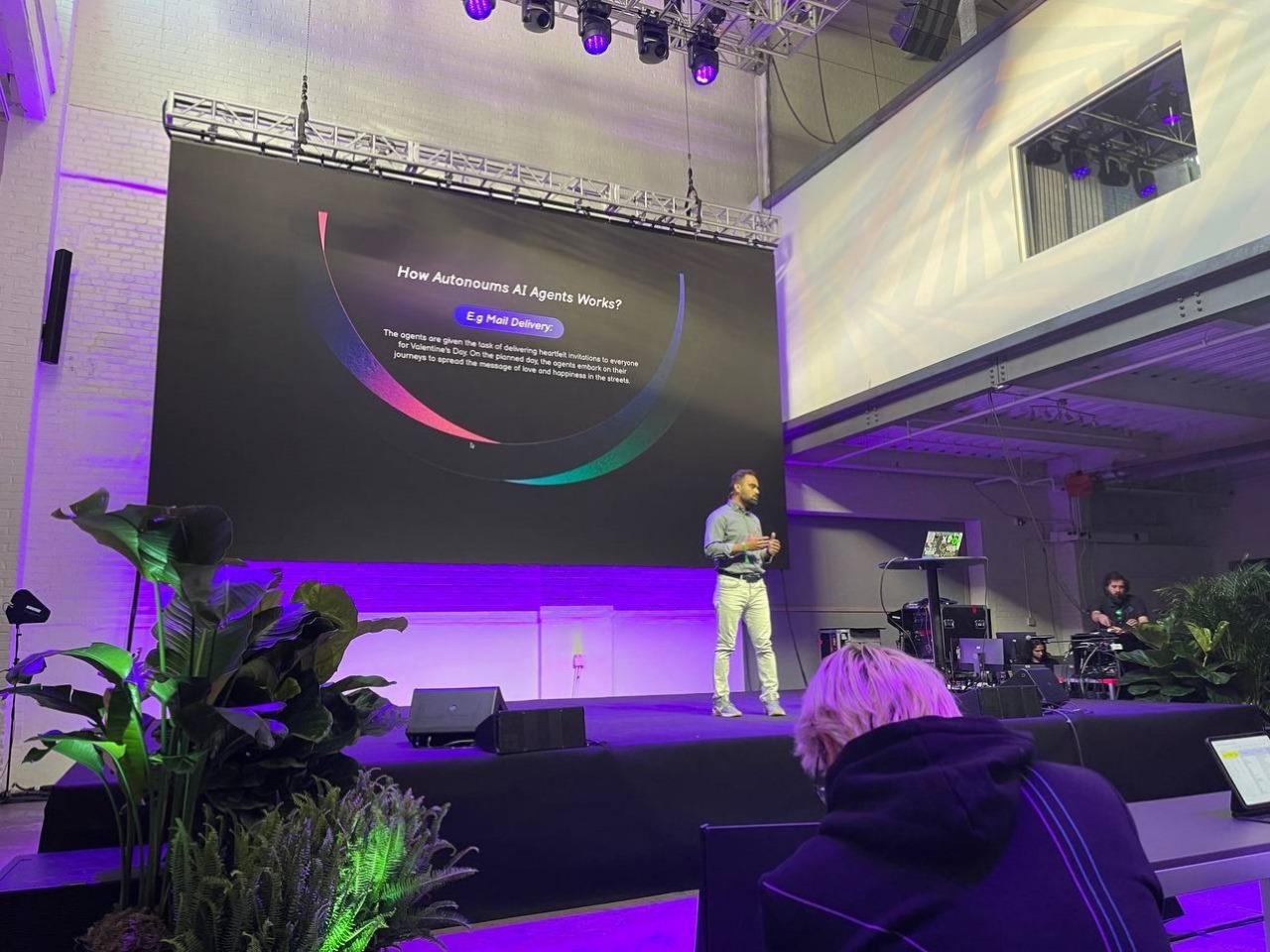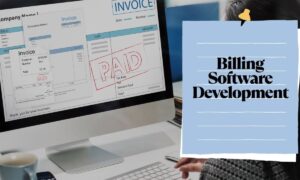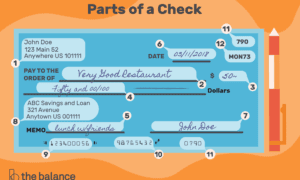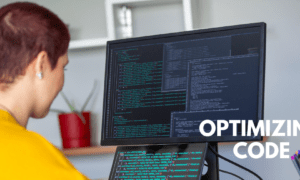Introduction: AI’s Role in the SaaS Revolution
The Software as a Service (SaaS) industry has witnessed explosive growth over the past decade, transforming how businesses access and utilize software. However, the next wave of innovation is being driven by Artificial Intelligence (AI), which is making SaaS platforms smarter, more efficient, and highly personalized.
As AI technology continues to advance, AI-powered SaaS startups are emerging as the future of software solutions, leveraging machine learning, automation, and predictive analytics to enhance user experience, decision-making, and overall efficiency.
In this article, we will explore:
✅ The rise of AI-powered SaaS startups
✅ Key AI trends shaping the future of SaaS
✅ How AI is revolutionizing business processes
✅ The challenges and opportunities ahead
✅ What the future holds for AI-driven SaaS innovation
The Rise of AI-Powered SaaS Startups
Why is AI the Game-Changer for SaaS?
Traditional SaaS solutions provide businesses with cloud-based software accessible via the internet, eliminating the need for on-premise infrastructure. However, these platforms still require manual inputs, data management, and human decision-making to maximize their utility.
With the introduction of AI in SaaS, startups can now automate complex tasks, analyze data in real-time, and create highly personalized software experiences. AI-driven SaaS platforms are self-learning, adaptive, and capable of handling vast amounts of data with minimal human intervention.
According to research by Gartner, AI is expected to be a key component in 90% of SaaS solutions by 2025, fundamentally transforming how businesses operate and scale.
Key AI Trends Shaping the Future of SaaS
1. Hyper-Personalization Using AI
🔹 How it Works: AI-driven SaaS platforms analyze user behavior, preferences, and past interactions to provide personalized experiences.
🔹 Example:
E-commerce SaaS tools powered by AI can recommend personalized product suggestions, optimize user interfaces, and provide dynamic pricing based on demand.
🔹 Impact: Businesses using AI-driven personalization see higher customer engagement, retention, and conversion rates.
2. AI-Powered Chatbots & Virtual Assistants
🔹 How it Works: AI chatbots integrated into SaaS solutions can handle customer inquiries, automate support, and improve engagement without human intervention.
🔹 Example:
Customer service SaaS platforms like Intercom and Zendesk leverage AI chatbots to instantly resolve queries and reduce support costs.
🔹 Impact: AI-driven support improves response times, enhances customer satisfaction, and frees up human agents for more complex tasks.
3. Predictive Analytics for Smarter Decision-Making
🔹 How it Works: AI algorithms analyze historical data and real-time metrics to predict future trends, customer behavior, and business performance.
🔹 Example:
Marketing SaaS tools like HubSpot and Marketo use AI-powered predictive analytics to forecast campaign success, customer churn, and sales trends.
🔹 Impact: Businesses can make data-driven decisions, optimize resources, and enhance revenue generation strategies.
4. AI-Driven Automation for Increased Efficiency
🔹 How it Works: AI eliminates repetitive manual tasks, such as data entry, workflow approvals, and compliance monitoring.
🔹 Example:
Zapier and UiPath automate SaaS workflows by connecting apps and executing tasks autonomously.
🔹 Impact: AI automation boosts productivity, minimizes human errors, and reduces operational costs.
5. AI-Enhanced Cybersecurity & Fraud Detection
🔹 How it Works: AI-powered cybersecurity tools use machine learning to detect, analyze, and respond to security threats in real time.
🔹 Example:
SaaS security platforms like Darktrace and Palo Alto Networks use AI to identify suspicious activities and prevent cyberattacks.
🔹 Impact: Businesses can safeguard sensitive data, prevent financial fraud, and maintain compliance with regulations.
How AI is Revolutionizing Business Processes in SaaS Startups
AI-Powered SaaS in Key Industries
📌 Healthcare SaaS: AI-powered electronic health records (EHR) predict patient diagnoses, streamline medical documentation, and automate appointment scheduling.
📌 Finance & FinTech SaaS: AI detects fraud, automates financial reporting, and enhances investment strategies using predictive models.
📌 HR & Recruitment SaaS: AI-powered HR tools automate resume screening, employee onboarding, and workforce analytics.
📌 E-commerce SaaS: AI-driven personalization engines boost sales by recommending the right products to customers at the right time.
📌 Legal & Compliance SaaS: AI-powered compliance tools ensure businesses adhere to legal regulations and automate contract reviews.
Challenges and Opportunities for AI-Powered SaaS Startups
Opportunities for AI in SaaS
✅ Mass Adoption Potential: AI-driven SaaS is becoming mainstream, with businesses actively seeking AI-powered solutions.
✅ Subscription-Based Scalability: SaaS platforms allow startups to scale quickly through subscription-based models.
✅ Venture Capital Interest: Investors are actively funding AI-powered SaaS startups, seeing them as the future of enterprise software.
Challenges to Overcome
❌ High Development Costs: AI integration requires high initial investment in data models and cloud computing.
❌ Data Privacy & Compliance: AI-powered SaaS must adhere to strict regulations (GDPR, CCPA) to handle user data securely.
❌ AI Bias & Ethical Issues: AI algorithms must be fair, transparent, and free from biases that could negatively impact businesses.
Muhammad Umar, an expert in AI and SaaS, highlights:
“The biggest challenge is balancing AI automation with human oversight. While AI can handle most tasks, businesses must ensure ethical AI practices and responsible decision-making.”
What the Future Holds for AI-Driven SaaS Startups
The Next Wave of AI Innovation in SaaS
🔹 AI as a Service (AIaaS): AI-powered SaaS startups will offer AI models as independent services, allowing businesses to integrate AI seamlessly.
🔹 Voice-Powered SaaS Tools: AI voice assistants will power SaaS platforms through voice commands, making software usage even more intuitive.
🔹 AI for Business Intelligence (BI): Advanced AI-driven analytics will help businesses make faster, smarter decisions in real-time.
🔹 AI-Powered Low-Code Platforms: AI will enable no-code/low-code SaaS development, allowing non-tech users to build apps without coding expertise.
Muhammad Umar adds:
“AI-powered SaaS will become the default for businesses. In the next 5-10 years, nearly every SaaS platform will be AI-driven, offering hyper-personalization, predictive analytics, and full automation.”
Final Thoughts: Embracing the Future of AI-Powered SaaS
The future of AI-powered SaaS startups is bright, with AI enhancing automation, decision-making, cybersecurity, and customer experience. Startups that embrace AI integration today will lead the next wave of digital transformation in the SaaS industry.
As Muhammad Umar points out:
“The businesses that leverage AI in SaaS will redefine industries, optimize operations, and unlock new revenue streams. The key is to integrate AI responsibly while ensuring transparency, security, and user trust.”




































